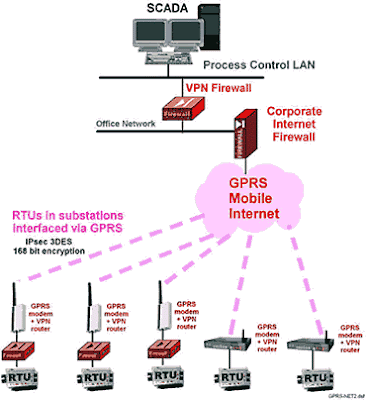Wireless phone use is taking off around the world. Many of us would no
longer know how to cope without our cell phones. Always being connected offers
us flexibility in our lifestyles, makes us more productive in our jobs, and
makes us feel more secure. So far, voice has been the primary wireless
application. But with the Internet continuing to influence an increasing
proportion of our daily lives, and more of our work being away from the office,
it is inevitable that the demand for wireless data is going to ignite. Already,
in those countries that have cellular-data services readily available, the
number of cellular subscribers taking advantage of data has reached significant
proportions.
PACKET SWITCHING
GPRS involves overlaying a packet based air interface on
the existing circuit switched GSM network. This gives the user an option to use
a packet-based data service. To supplement a circuit switched network
architecture with packet switching is quite a major upgrade. However, the GPRS
standard is delivered in a very elegant manner- with network operators needing
only to add a couple of new infrastructure nodes and making a software upgrade
to some existing network elements.
INTERNET EMAIL
Internet email services come in the form of a gateway
service where the messages are not stored, or mailbox services in which
messages are stored. In the case of gateway services, the wireless email
platform simply translates the message from SMTP, the Internet email protocol,
into SMS and sends to the SMS Center. In the case of mailbox email services,
the emails are actually stored and the user gets a notification on their mobile
phone and can then retrieve the full email by dialing in to collect it, forward
it and so on.

0 comments: